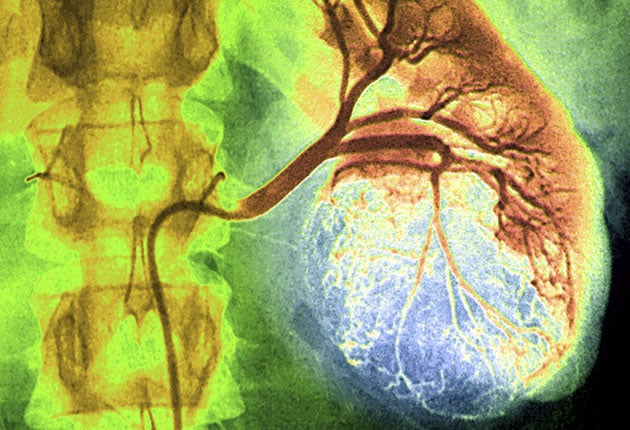Unless drug firms cut prices NHS cancer fund is doomed, says study

Your support helps us to tell the story
From reproductive rights to climate change to Big Tech, The Independent is on the ground when the story is developing. Whether it's investigating the financials of Elon Musk's pro-Trump PAC or producing our latest documentary, 'The A Word', which shines a light on the American women fighting for reproductive rights, we know how important it is to parse out the facts from the messaging.
At such a critical moment in US history, we need reporters on the ground. Your donation allows us to keep sending journalists to speak to both sides of the story.
The Independent is trusted by Americans across the entire political spectrum. And unlike many other quality news outlets, we choose not to lock Americans out of our reporting and analysis with paywalls. We believe quality journalism should be available to everyone, paid for by those who can afford it.
Your support makes all the difference.An emergency cancer fund planned by the Government to increase access to expensive life-prolonging treatments for patients is in danger of being overwhelmed unless drug manufacturers cut their prices, a report says today.
Cancer drugs can cost tens of thousands of pounds for each patient and pharmaceutical companies should be required to agree a "cost cap", limiting the total amount they can earn from the NHS for a particular treatment, according to the Rarer Cancers Foundation (RCF).
Andrew Lansley, the health secretary, announced last week that the Government would allocate £50m to the emergency fund from next October, and an expected £200m a year from next April. The fund will pay for medicines that can extend life by a few months or improve quality of life, but which may have been rejected by the National Institute for Clinical Excellence (Nice) as too expensive.
It will also cover drugs currently used off-label by clinicians to treat conditions not covered by the medicine's licence, or those which have yet to be assessed by Nice.
But in a report published today the RCF says it is vital the Government limits the overall cost of making new treatments available, to prevent the fund running out of cash. Costs could rise as high as £330m a year if every available cancer treatment which physicians wished to prescribe were made available, it says.
In that event, thousands of patients could end up being denied drugs under the new scheme and access could depend on where they lived, creating a new postcode lottery.
Andrew Wilson, chief executive of the RCF, said: "Successive governments have made important advances in making cancer treatments available. Now drug companies must do their bit."
The warning comes as The Lancet attacked the principle behind the fund accusing the Government of "political opportunism" and "intellectual incoherence."
In an editorial the medical journal says the fund not only undermines Nice – set up to promote equity in the allocation of drugs for use on the NHS – but also undermines "the entire concept of a rational and evidence-based approach to the allocation of finite healthcare resources."
It says Mr Lansley used a report showing Britain came 12th in a European league table for access to cancer drugs as justification for launching the fund.
But the same report showed Britain came 13th for drugs for multiple sclerosis and 11th for drugs for dementia.
"Presumably, emergency funds for dementia and multiple sclerosis drugs will be announced in due course – anything else would be intellectually indefensible," The Lancet editorial says.
According to the RCF, Nice has rejected, or said it is minded to reject, 10 cancer treatments since the general election in May, which could now be made available to patients who apply to the emergency fund. It estimates the average cost of a new cancer drug at almost £21,000 per patient. In the current year, an estimated 2,000 patients are likely to benefit from the £50m fund.
Yesterday, the Department of Health said no final decisions on how much the cancer drugs fund would be worth would be made until the spending review in the autumn.
A spokesperson for the Association of the British Pharmaceutical Industry said: "The UK currently has amongst the lowest prices in Europe for medicines, we spend less of our GDP on medicines compared to the European average and our use of newer cancer treatments lags behind the rest of Europe. We welcome all initiatives which are aimed at enabling doctors to prescribe the medicines they believe will benefit their patients across all disease areas."
Join our commenting forum
Join thought-provoking conversations, follow other Independent readers and see their replies
Comments